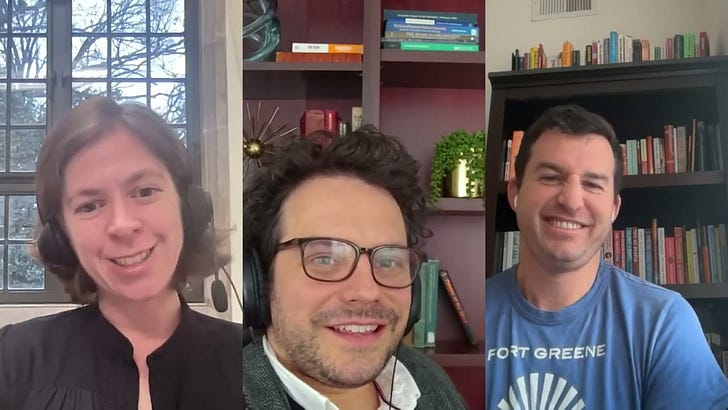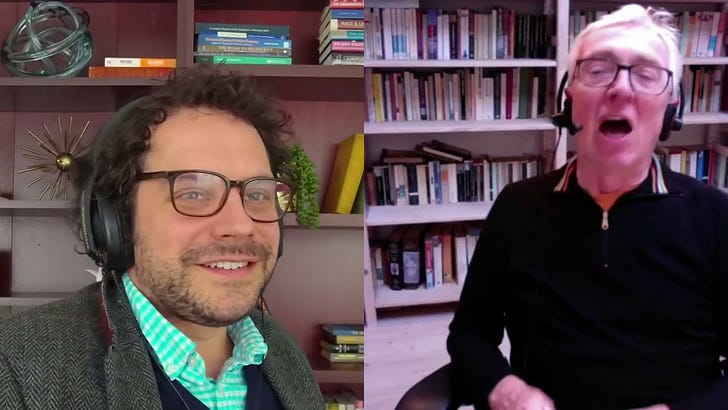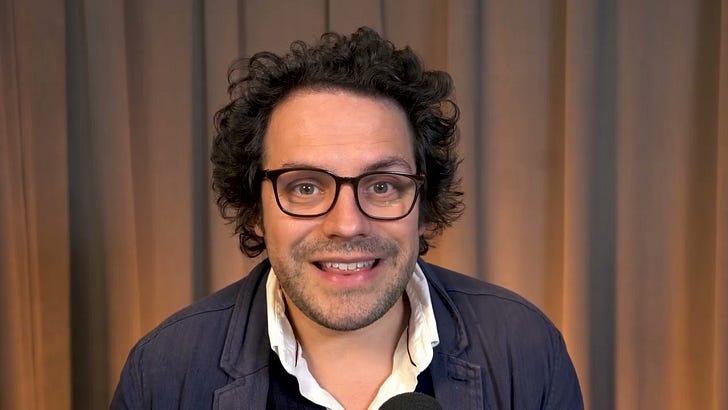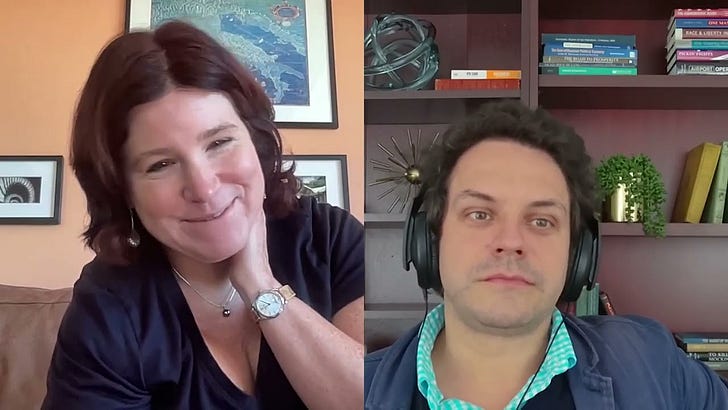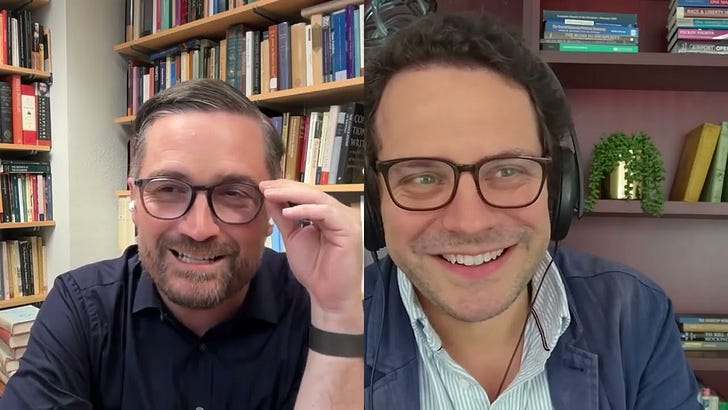I wanted to speak to Matthew Yglesias (who writes Slow Boring ) because of his recent posts about Middlemarch and his new habit of reading classic novels. After seeing Patrick Collison’s tweet about reading great fiction, Yglesias decided to spend less time scrolling the internet and more time reading the great works of the nineteenth century. He now spends several hours a day reading—and several hours a day not watching Netflix. One thing reading all this great fiction made him realise is that so much of the modern “television canon” relies on violence for its suspense, which is a great contrast to novels like Daniel Deronda.
We also talked about Cate Blanchett, Jurassic Park, Ripley, how soon AI will take his job, how soon AI will take my job, how much time we will all spend reading in the future, the influence of the three novelists in his family, his father’s advice for avoiding writer’s block, what he thinks about George Eliot’s long sentences, and plenty more.
Matt has said that we ought to treat reading like exercise, and that watching Netflix is a bit like eating junk food. So I asked him, if you exercised, you would feel better, you would have a lower resting heart rate, and so on. What are those benefits for reading? Here’s what he told me. (The “she” here refers to George Eliot.)
I mean, I do feel better.
I think that I find it to make the world less stressful to actually take some time out of the day and sit with something that is good, but is not making any reference to you know, current events.
I mean, not just current events in the sense of Trump or whatever, but just like our society. She didn't know that there would be a Minecraft movie or a game called Minecraft or a thing called iPads or a dispute with your kids about screen time.
And so you're sitting with things about humanity, some of which seem quite odd and others of which seem quite resonant across a long span of time and you have to pay attention to what's going on and you know to me that has been a sort of a de-stressing experience relative to everything that's happening there and it also just gives me in my own writing, some stuff to think about that does, it turns out, relate, or at least seems to me to relate to, the problems of today, but that you wouldn't find elsewhere that other people aren't thinking of, that they don't know about.
You know, what's the kind of like the longer story of antisemitism in Western liberal countries? I mean, I'm Jewish, so I'm like familiar with the subject as like something you would think about. But what normally comes up in that kind of context is like the lowlights of global history, you know? So the expulsion of the Jews from Spain, right? Or the Holocaust or something like that versus just, you know, like how people would talk maybe in a book. I mean, not even in, I mentioned Daniel Deronda, which is about that. But there's just like other examples in older books, you know, people were like, he's rich as a Jew. And you're like, huh?
Here’s what Matt said about television and violence.
I have been watching The White Lotus. I'm struck that a lot of stuff, The Sopranos and The Wire, which, you know, or Breaking Bad, The Americans, the sort of television canon, right? All of those stories are very reliant on the constant presence of violence to generate a kind of suspense and interest and drive the story forward. And I think if you look at any one of those things in total isolation, you'd be like, well, you know what?It's like, this is an interesting story about drug dealers and police in Baltimore. This is an interesting story about a mafia. And they are. These are interesting stories.
But it is striking that they are all like that.
You know, whereas the classics of literary fiction are much more... I mean, not all of them. Obviously, there's a war in War and Peace. Things happen, but they are much more restrained, you know, in terms of like, look, what actually happens here? It's much closer to... even though it's temporally displaced from our current events, it's like people living their lives. And the, you know, conceit is, this is some kind of slice of our society. And this is the kinds of things that happen to people. You know, sometimes the things that happen get quite weird and outlandish. I mean, the plot of Daniel Deronda is a little... zany, but it's not, you know, you're not like, oh, is she going to get killed? You know, like every 10 minutes to hold your interest.
Also, Matt has a form of aphantasia. He visualises very little when he reads. (Just like Hollis Robbins (@Anecdotal) who wrote about aphantasia and literature here.) Matt said,
I've had conversations with people, when they see adaptations on the screen and they'll be like, oh, I always pictured so-and-so as like this. And I'll tell them, well, I always pictured so-and-so as like exactly as described in the text. if the text doesn't say what color her eyes were, I don't picture anything. I read what it says. And if it says she's tall, then she's tall. If it says she has blue eyes, she has blue eyes.
But we know, there's a range of different eye colors that I would describe as blue. And if you use words to tell me, I get it. But otherwise, I don't kind of get it. So to me, it's a very different experience on that level. I don't have like a like a head movie of what you know Mansfield Park looks like






